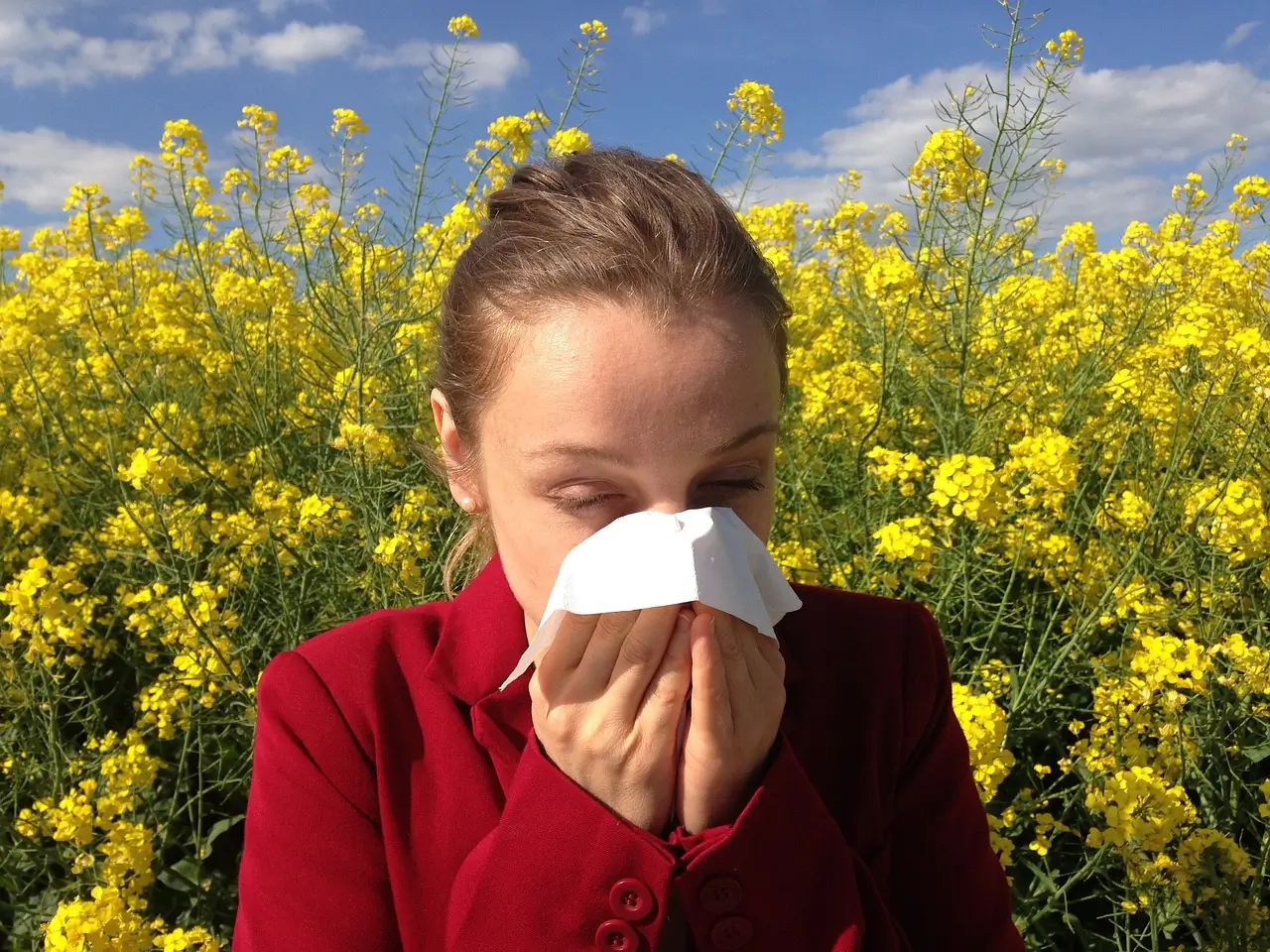Ditch the tissues and enjoy the sunshine! This guide explores the most common allergens that trigger summer seasonal allergies, offering tips for identification, prevention, and symptom relief. Breathe easy and reclaim your summer fun!
Summer Sneezes: Demystifying the Causes of Seasonal Allergies
Summer – a time for barbecues, beach trips, and basking in the sun. But for many, this season also brings a return of dreaded allergies, leading to sniffles, itchy eyes, and a constant battle with tissues. What exactly triggers these summer allergies, and how can you identify and combat the culprits? This blog delves into the most common allergens lurking outdoors during the summer months, empowering you to enjoy the season to the fullest.
Understanding Seasonal Allergies: It’s All About the Immune System
Seasonal allergies, also known as hay fever, occur when your immune system overreacts to harmless airborne substances, like pollen. These substances, called allergens, trigger the release of histamines, which cause the familiar allergy symptoms:
- Runny or stuffy nose
- Itchy, watery eyes
- Sneezing
- Congestion
- Coughing
While spring is often associated with allergies due to tree pollen, summertime brings its own set of airborne irritants waiting to wreak havoc on your sinuses.
The Usual Suspects: Common Summer Allergy Triggers
Here’s a breakdown of the most common culprits behind summer allergies:
- Grass Pollen: Grass pollen is a major summertime allergen. Grasses release pollen throughout the season, causing symptoms like sneezing, runny nose, and itchy eyes.
- Ragweed: This notorious weed pollinates from late summer to early fall, releasing massive amounts of pollen that can travel for hundreds of miles. Ragweed is a significant trigger for many allergy sufferers.
- Mold Spores: Warm, humid summer weather creates ideal conditions for mold growth. Inhaling mold spores can exacerbate allergy symptoms, particularly for individuals sensitive to mold.
- Dust Mites: While often associated with year-round allergies, dust mites can also worsen allergy symptoms during the summer. Increased humidity can lead to dust mite growth, especially in bedding and carpets.
Understanding the specific allergens in your area is crucial for effective allergy management. Talking to your doctor and conducting an allergy test can help identify your personal triggers.
Identifying the Enemy: Signs and Symptoms of Summer Allergies
How can you tell if your summer sniffles are due to a cold or allergies? Here are some key differences:
Summer Allergies:
- Symptoms that worsen outdoors: Symptoms tend to be worse when you spend time outdoors, especially on windy days.
- Itchy, watery eyes: Itchy and watery eyes are a common symptom of allergies, less prevalent with colds.
- Clear nasal discharge: Allergic rhinitis typically produces a clear, watery nasal discharge, unlike the thick and yellow mucus associated with colds.
- Seasonal occurrence: Symptoms typically appear during specific times of the year, coinciding with pollen seasons.
Colds:
- Fever and fatigue: Colds are often accompanied by a low-grade fever and general fatigue, less common with allergies.
- Muscle aches and pains: Body aches and pains are not typical symptoms of allergies.
- Gradual onset of symptoms: Colds usually develop gradually over a few days, while allergy symptoms can appear suddenly after exposure to a trigger.
If you’re unsure about the cause of your symptoms, consulting your doctor is recommended for proper diagnosis and treatment.
Battling Back: Strategies for Summer Allergy Relief
Knowing your triggers is the first step to managing summer allergies. Here are some strategies to minimize exposure and alleviate symptoms:
- Pollen Tracking: Check pollen forecasts regularly and stay indoors during peak pollen hours (usually mornings).
- Minimize Outdoor Activities on Windy Days: Windy days can stir up pollen and exacerbate symptoms. Limit outdoor activities on windy days.
- Keep Windows Closed: Keep windows closed during peak pollen hours to prevent allergens from entering your home.
- Invest in Air Purification: An air purifier with a HEPA filter can help remove pollen and other allergens from your indoor air.
- Shower and Change Clothes After Outdoor Activities: Pollen can cling to your hair and clothes. Showering and changing clothes after spending time outdoors can reduce your exposure.
- Over-the-Counter Medications: Antihistamines and decongestants can effectively alleviate allergy symptoms. Consult your doctor to determine the best medications for your needs.
- Nasal Sprays: Nasal corticosteroids can reduce inflammation and swelling in the nasal passages, offering relief from congestion and runny nose. Consult your doctor before using nasal corticosteroids.
- Allergy Shots (Immunotherapy): For long-term relief, consider allergy shots. This treatment gradually desensitizes your immune system to allergens, reducing your future reactions.
Natural Remedies for Summer Allergy Relief
Alongside conventional treatments, some natural remedies may offer additional relief for summer allergies:
- Nasal Saline Irrigation: Regularly rinsing your nasal passages with a saline solution can help clear mucus and allergens.
- Local Honey: Studies suggest local honey consumption may offer some relief from allergy symptoms. Speak with your doctor before trying this remedy.
- Quercetin: This natural compound found in fruits and vegetables may possess anti-inflammatory properties that can help ease allergy symptoms. Consult your doctor before taking quercetin supplements.
Important Note: Always consult your doctor before starting any new medications or supplements, especially if you have pre-existing health conditions.
Living with Summer Allergies: Proactive Prevention is Key
By being proactive and implementing preventive measures, you can significantly reduce the impact of summer allergies on your life:
- Maintain a Clean and Allergen-Free Home: Regularly vacuum carpets, wash bedding, and dust furniture to remove dust mites and allergens.
- Invest in Mattress and Pillow Covers: Encase your mattress and pillows in allergen-proof covers to prevent dust mites from accumulating.
- Wash Bedding in Hot Water: Wash bedding in hot water (at least 130°F or 54°C) weekly to kill dust mites.
- Dry Laundry Indoors: Pollen can stick to laundry drying outdoors. Dry clothes indoors on a drying rack or use a dehumidifier if using a dryer.
- Consider Air Conditioning: Air conditioning helps cool your home and filters out some airborne allergens.
By adopting a combination of these strategies, you can take control of your summer allergies and enjoy the warm weather without constant sniffles and itchy eyes.
Conclusion: Conquering Summer Allergies and Embracing the Season
Summer allergies can put a damper on your enjoyment of the season. However, by understanding the common triggers, adopting preventive measures, and utilizing effective treatment options, you can breathe easy and reclaim your summer fun. Remember:
- Identify Your Triggers: Know which allergens are causing your symptoms and minimize exposure.
- Practice Prevention: Keep your home allergen-free and limit outdoor exposure during peak pollen times.
- Explore Treatment Options: Over-the-counter medications, nasal sprays, and immunotherapy can provide significant relief.
- Consider Natural Remedies: Nasal saline irrigation, local honey, and quercetin (with doctor consultation) may offer additional support.
With a proactive approach and the right tools, you can turn summer sniffles into summer smiles!



